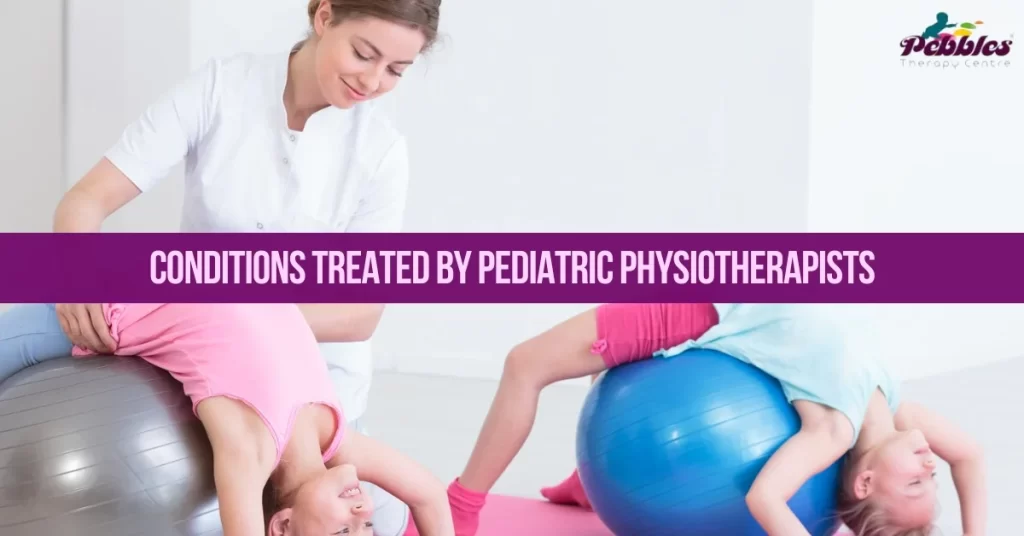List of Conditions Treated by Pediatric Physiotherapists
Pediatric physiotherapists play a crucial role in enhancing the well-being of children by addressing a spectrum of physical challenges. This list explores the diverse range of Conditions Treated by these specialized Pediatric Physiotherapists, highlighting the vital role they play in promoting optimal physical development and improving the quality of life for young patients.
Common Conditions Treated by Pediatric Physiotherapists
Children’s lives are greatly impacted by pediatric physiotherapists, who support them in realizing their full potential and improving their general well-being. These skilled therapists provide evaluation, diagnosis, and treatment for a broad spectrum of disorders impacting the mobility, development, and general health of newborns, toddlers, and teenagers.
Their knowledge encompasses concerns related to neurology, development, cardiopulmonary, and orthopaedics, allowing them to handle a wide range of medical conditions. Pediatric physiotherapists are committed to enabling children to flourish, whether it means treating complicated medical problems, fostering independence, or fostering the development of motor skills.
Their all-inclusive approach includes customized treatments, specific treatment plans, and continuous support, enabling families to take an active role in their child’s care.
The following list of frequent diseases that pediatric physiotherapists successfully treat offers important information about the range of their work and the difference they make in the lives of children.
Cerebral Palsy
Movement and coordination are impacted by a collection of conditions known as cerebral palsy (CP). Damage to the developing brain either before or at birth is the cause of it. CP can cause a wide range of symptoms, including muscle weakness, stiffness, and difficulty with coordination.

How Pediatric Physiotherapists Can Help
Pediatric physiotherapists can help children with CP in a number of ways, including:
- Improving muscle strength and flexibility
- Improving balance and coordination
- Improving range of motion
- Preventing contractures and joint dislocations
- Teaching children how to use adaptive equipment
- Assisting kids in meeting their developmental milestones
Down Syndrome
Down Syndrome is a genetic disorder that causes a variety of physical and mental health problems. Children with Down syndrome may experience delays in physical development, including difficulty with gross motor skills, fine motor skills, and balance.
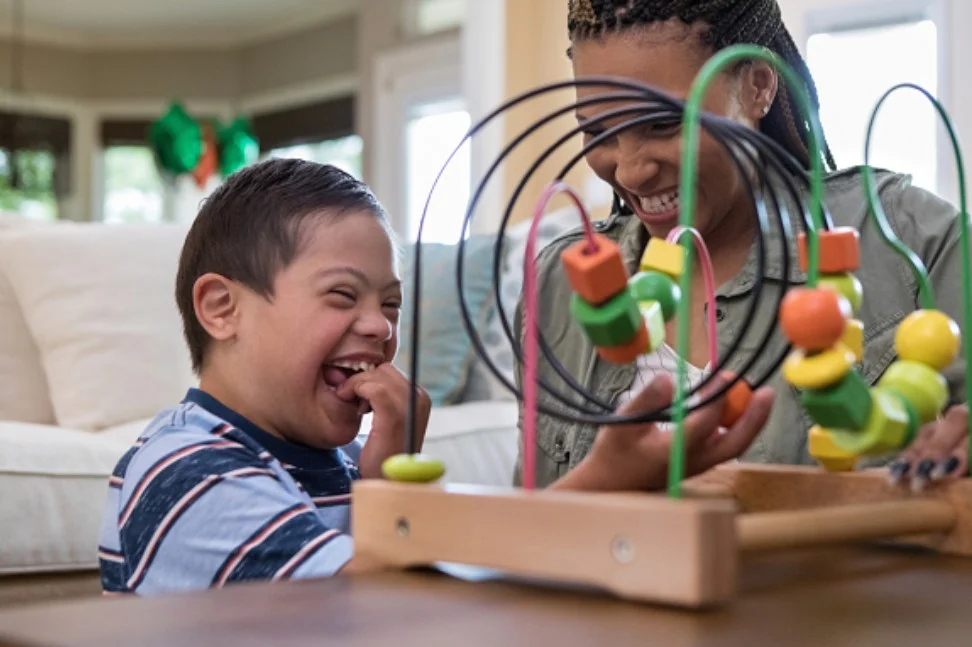
How Pediatric Physiotherapists Can Help
Physical Therapy for kids can help children with Down Syndrome in a number of ways, including:
- Improving muscle strength and flexibility
- Improving balance and coordination
- Improving range of motion
- Preventing contractures and joint dislocations
- Teaching children how to use adaptive equipment
- Assisting kids in achieving their growth objectives
Autism Spectrum Disorder
A developmental disease affecting behavior and communication is called autism spectrum disorder (ASD). Children with ASD may experience difficulty with social interaction, language, and repetitive behaviors.
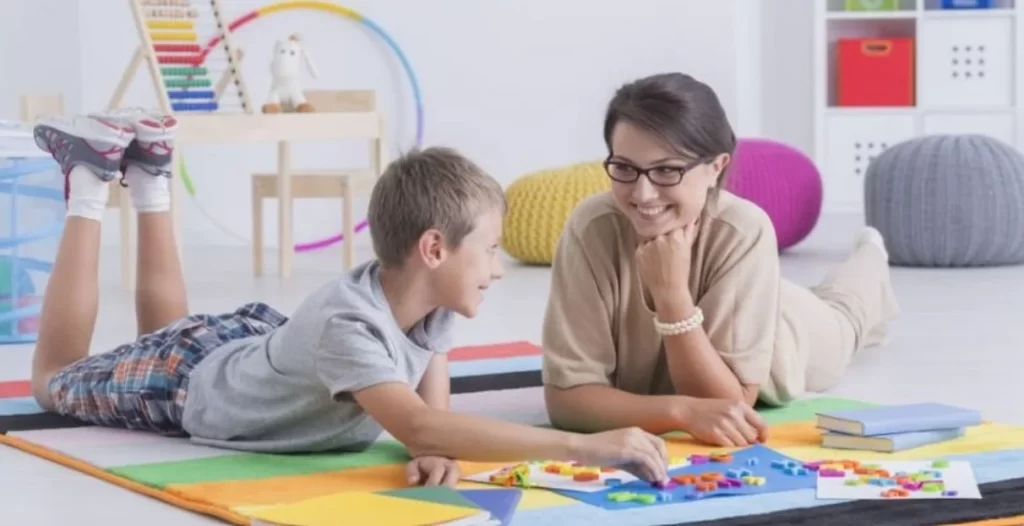
How Pediatric Physiotherapists Can Help
Pediatric physiotherapists can help children with ASD in a number of ways, including:
- Improving gross motor skills
- Improving balance and coordination
- Improving fine motor skills
- Improving sensory processing
- Helping children to develop play skills
- Helping children to transition to school and other activities
Muscular Dystrophy
A collection of hereditary conditions known as muscular dystrophy results in gradual muscle weakening. Walking, jogging, climbing stairs, and other physical activities may be challenging for kids with muscular dystrophy.
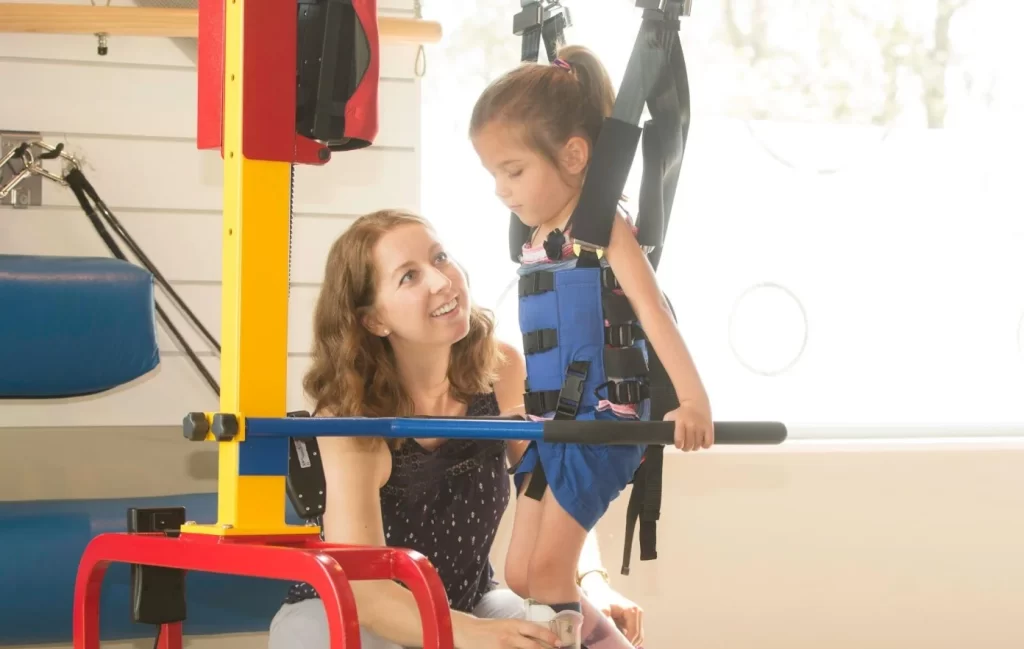
How Pediatric Physiotherapists Can Help
Pediatric physiotherapists can help children with muscular dystrophy in a number of ways, including:
- Maintaining muscle strength and flexibility
- Improving balance and coordination
- Preventing contractures and joint dislocations
- Teaching children how to use adaptive equipment
- Helping children to maintain their independence
Spina Bifida
The spine and spinal cord development is impacted by the birth condition known as spina bifida. Children with spina bifida may experience a variety of physical problems, including paralysis of the legs and bladder incontinence.
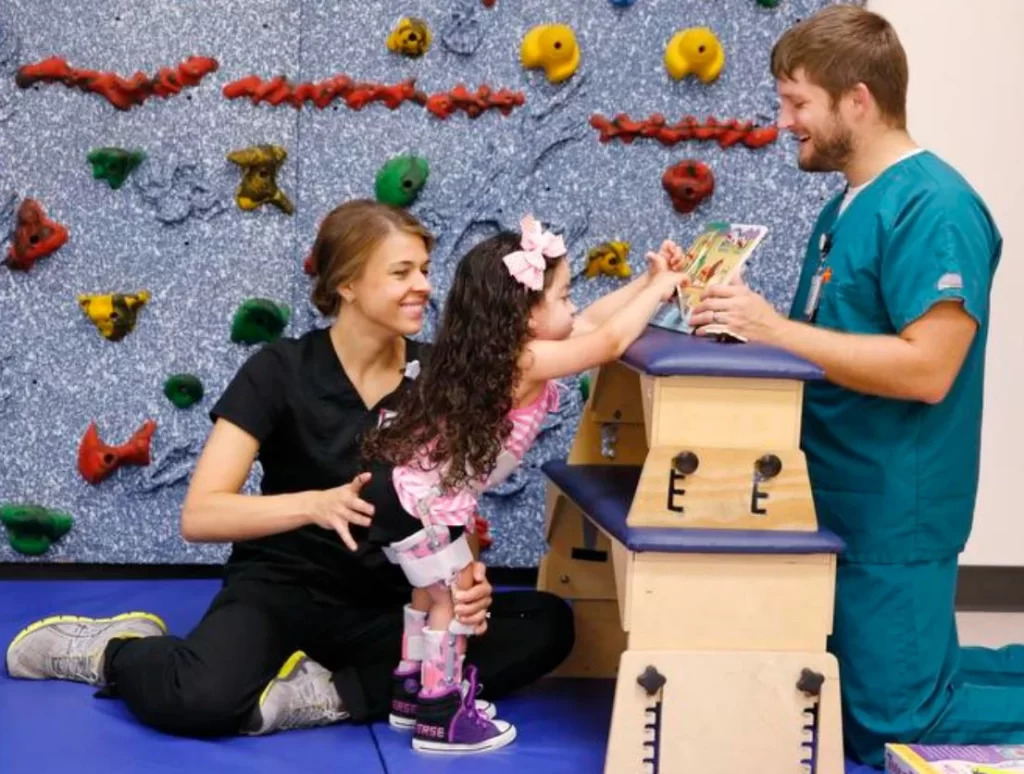
How Pediatric Physiotherapists Can Help
Pediatric physiotherapists can help children with spina bifida in a number of ways, including:
- Improving muscle strength and flexibility
- Improving balance and coordination
- Preventing contractures and joint dislocations
- Teaching children how to use adaptive equipment
- Assisting kids in meeting their developmental milestones
Cystic Fibrosis
Cystic Fibrosis is a genetic disorder that causes a buildup of mucus in the lungs and other organs. Children with cystic fibrosis may experience difficulty with breathing, exercise intolerance, and malnutrition.
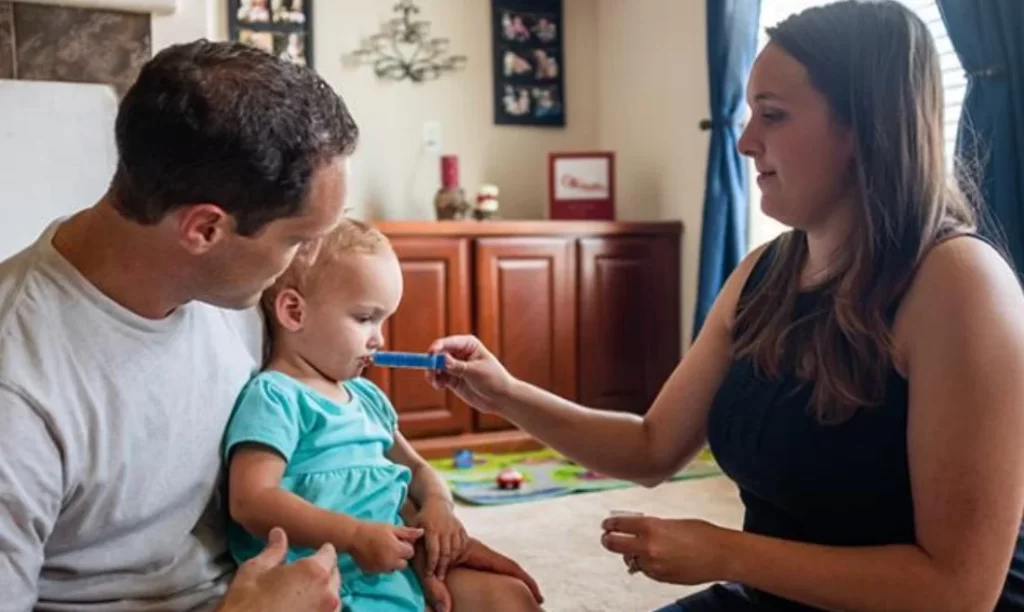
How Pediatric Physiotherapists Can Help
Children with cystic fibrosis can benefit from pediatric physical therapists in a variety of ways, such as:
- Teaching children how to clear mucus from their lungs
- Improving exercise tolerance
- Preventing malnutrition
- Improving quality of life
Juvenile Idiopathic Arthritis
Juvenile Idiopathic Arthritis (JIA) is a chronic autoimmune disease that affects the joints. It is one of the conditions treated by pediatric physiotherapists in kids. Children with JIA may experience pain, swelling, and stiffness in one or more joints.
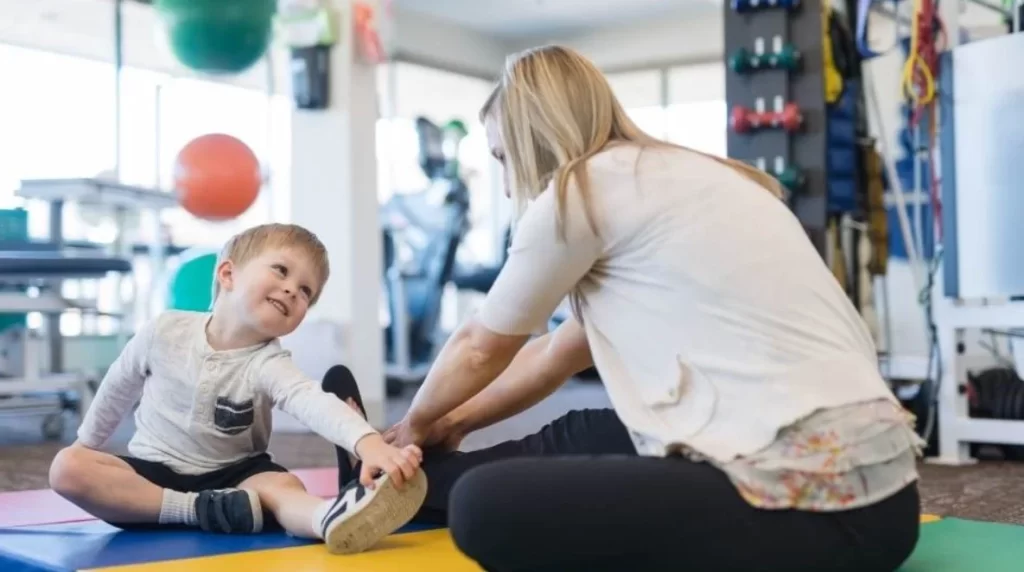
How Pediatric Physiotherapists Can Help
Pediatric physiotherapists can help children with JIA in a number of ways, including:
- Relieving pain and inflammation
- Improving range of motion
- Strengthening muscles
- Improving balance and coordination
- Helping children to maintain their independence
Torticollis
Torticollis is a condition in which the neck muscles are unevenly developed, causing the head to tilt to one side. Torticollis is most often diagnosed with conditions treated by pediatric physiotherapists in infants, but it can also occur in older children and adults.

How Pediatric Physiotherapists Can Help
Pediatric physiotherapists can help children with torticollis in a number of ways, including:
- Stretching the tight neck muscles
- Strengthening the weak neck muscles
- Instructing caregivers on how to arrange for young children to avoid head tilts
- Using corrective devices, such as a torticollis helmet
Developmental Coordination Disorder
A neurodevelopmental condition affecting motor coordination is called developmental coordination disorder (DCD). Fine motor abilities like writing and tying shoes, as well as gross motor skills like running and jumping, may be problematic for children with DCD.
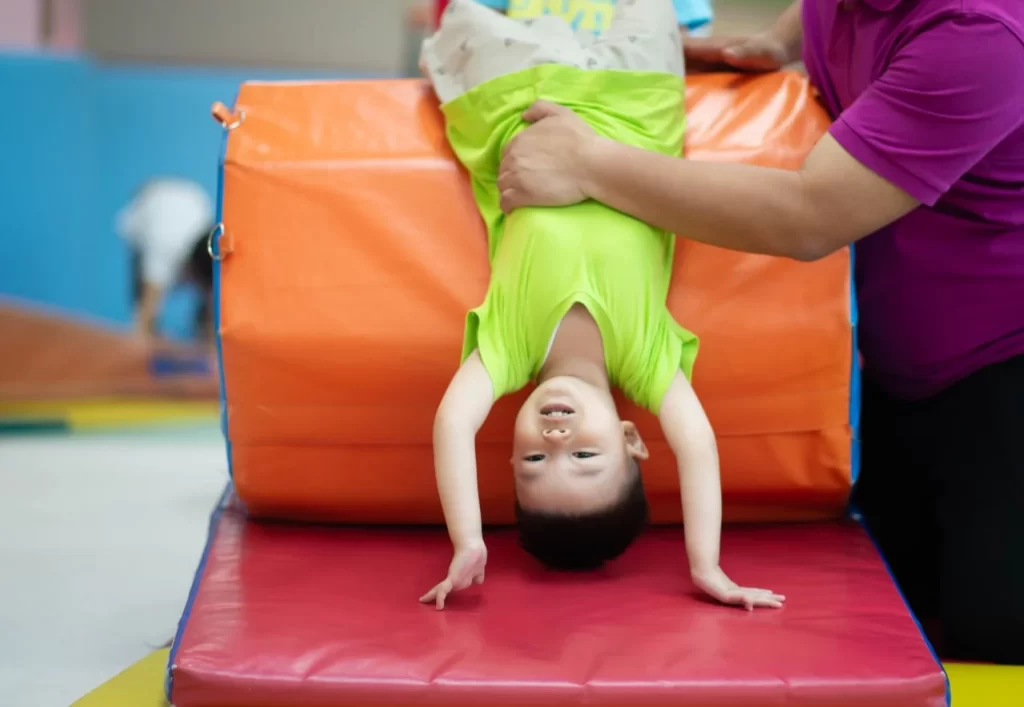
How Pediatric Physiotherapists Can Help
Pediatric physiotherapists can help children with DCD in a number of ways, including:
- Improving muscle strength and coordination
- Improving balance and proprioception
- Improving range of motion
- Teaching children how to break down complex skills into smaller steps
- Helping children to develop strategies for coping with their difficulties
Gross Motor Delay
Children who experience delays in the development of their gross motor abilities are referred to as having a gross motor delay. Gross motor skills are the large movements that the body makes, such as walking, running, and jumping.
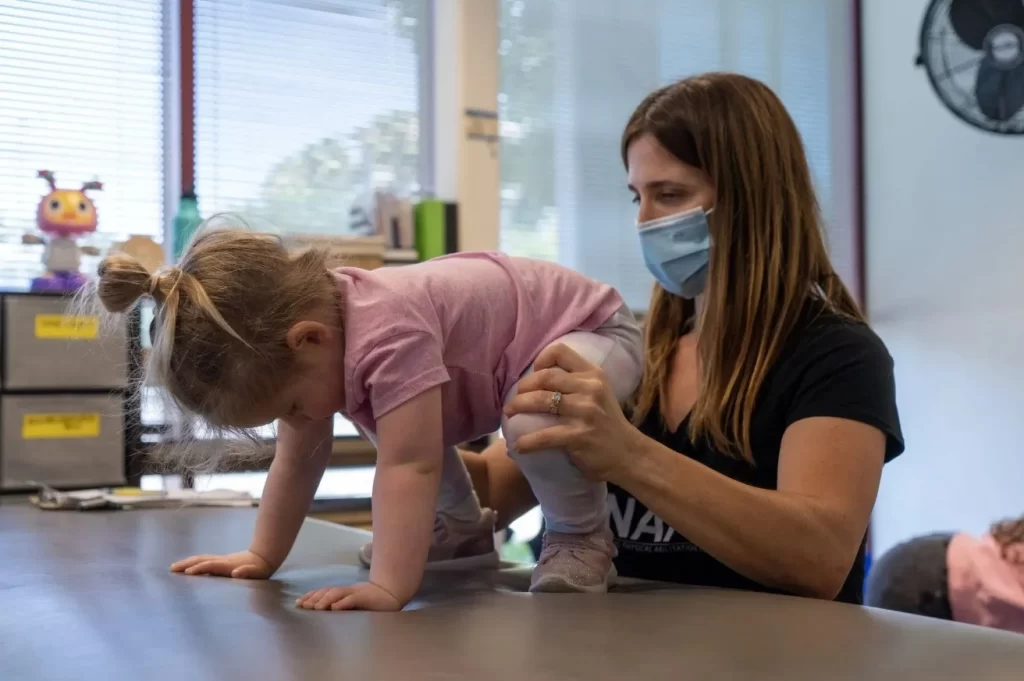
How Pediatric Physiotherapists Can Help
Physical Therapy for kids can help children with gross motor delay in a number of ways, including:
- Assessing the child’s strengths and weaknesses
- Developing a personalized treatment plan
- Teaching the child how to develop their gross motor skills
- Helping the child to participate in activities that are appropriate for their developmental level
Post-Surgical Conditions
Pediatric physiotherapists often work with children who have had surgery to correct a variety of conditions, such as scoliosis, clubfoot, and cerebral palsy.
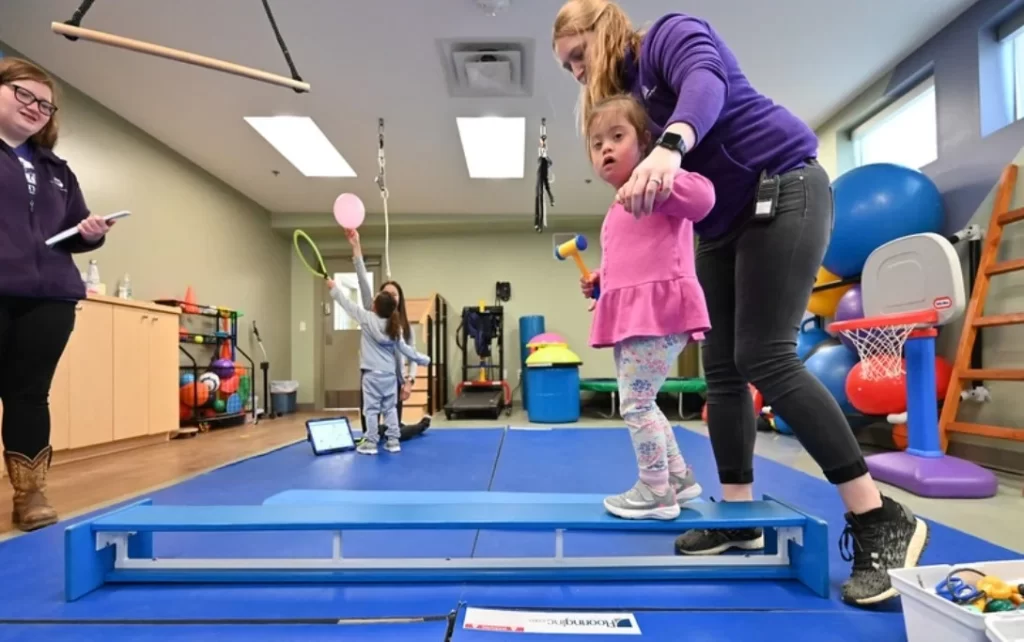
How Pediatric Physiotherapists Can Help
Pediatric physiotherapists can help children who have had surgery in a number of ways, including:
- Reducing pain and inflammation
- Improving range of motion
- Strengthening muscles
- Improving balance and coordination
- Instruction in the use of adapted equipment for the child
- Assisting the kid to resume their regular activities
Sports Injuries
Sports-related injuries are among the prevalent ailments. Such conditions are treated by pediatric physiotherapists for kids involved in athletics. The most common sports injuries in children are sprains, strains, and fractures.
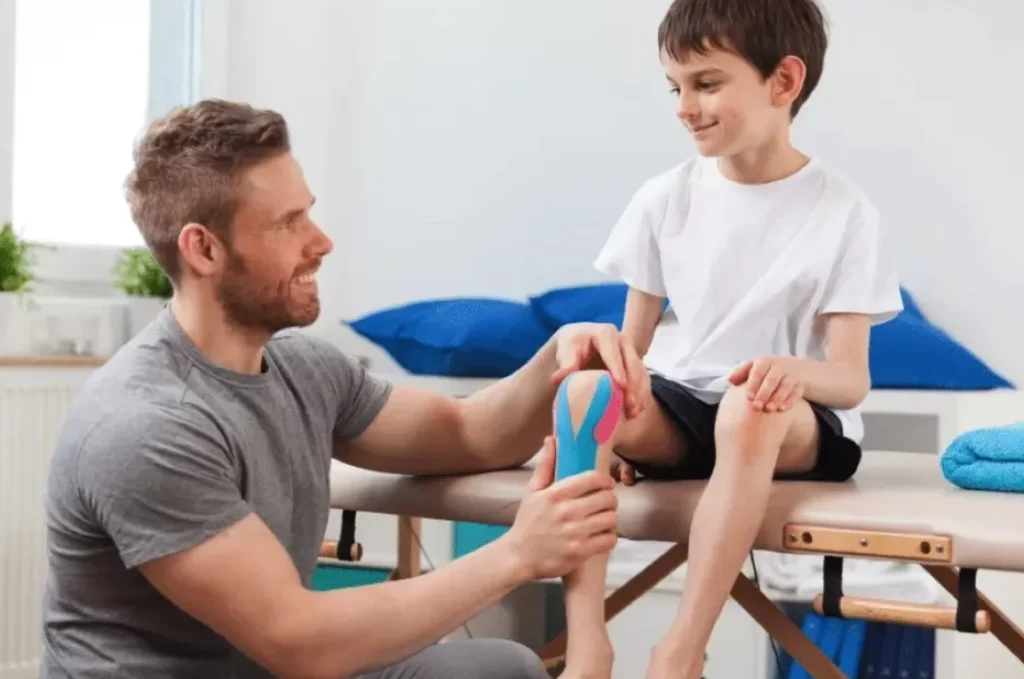
How Pediatric Physiotherapists Can Help
Pediatric physiotherapists can help children with sports injuries in a number of ways, including:
- Evaluating the injury and developing a treatment plan
- Providing pain relief
- Improving range of motion
- Strengthening muscles
- Improving balance and coordination
- Helping the child to return to sports safely
In summary, pediatric physiotherapists are invaluable champions for children facing various physical challenges. From developmental delays to injuries and neurological issues, these experts provide tailored interventions, promoting strength, mobility, and overall well-being. Their dedicated efforts underscore the crucial role of pediatric physiotherapy in nurturing the health and potential of every child.
FAQs
The goal of pediatric physical therapy is to improve a child’s motor skills, coordination, and flexibility via age-appropriate exercises and activities. Suggestions may include playful pediatric physical therapy exercises, games, and activities tailored to the child’s developmental stage.
Yes, physiotherapy can be beneficial for autistic children. It can help improve gross motor skills, coordination, and sensory integration, contributing to enhanced overall physical and behavioral well-being.
Pediatric physiotherapy encompasses various therapies such as neurodevelopmental therapy, sensory integration therapy, and musculoskeletal therapy. These aim to address motor and developmental challenges in children through targeted pediatric physiotherapy exercises and activities.
Yes, physical therapy is beneficial for kids as it promotes child development of motor skills, strength, and flexibility. It can address issues related to injuries, developmental delays, and conditions affecting physical abilities in a child-friendly and engaging manner.
Physiotherapy in pediatrics is crucial for promoting optimal physical development in children. Pediatric conditions in physiotherapy are treated with a variety of techniques to improve motor skills, function, and independence. It aids in addressing developmental delays, improving motor skills, enhancing coordination, and managing conditions that affect a child’s physical abilities, fostering overall well-being from an early age.

